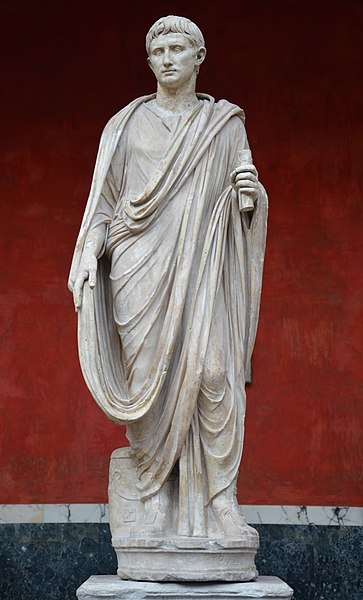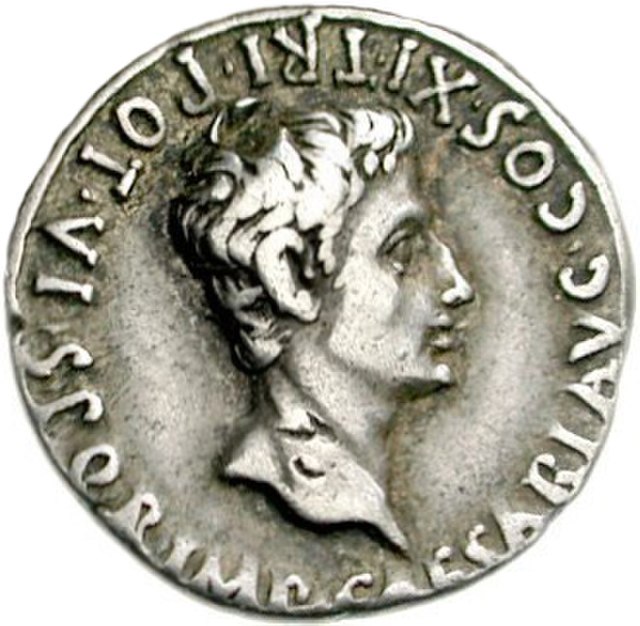Nerva was a Roman emperor from 96 to 98. Nerva became emperor when aged almost 66, after a lifetime of imperial service under Nero and the succeeding rulers of the Flavian dynasty. Under Nero, he was a member of the imperial entourage and played a vital part in exposing the Pisonian conspiracy of 65. Later, as a loyalist to the Flavians, he attained consulships in 71 and 90 during the reigns of Vespasian and Domitian, respectively. On 19 September 96, Domitian was assassinated in a palace conspiracy involving members of the Praetorian Guard and several of his freedmen. On the same day, Nerva was declared emperor by the Roman Senate. As the new ruler of the Roman Empire, he vowed to restore liberties which had been curtailed during the autocratic government of Domitian.
Nerva
A bust of emperor Domitian. Capitoline Museums, Rome.
The last remaining columns from the largely blind peristyle surrounding a temple to Minerva, located at the heart of the Forum of Nerva. The visible door frame is not an original element but rather one of the many modifications made during the Middle Ages.
Bronze statue of Nerva in the Via dei Fori Imperiali, Rome
The Roman emperor was the ruler and monarchical head of state of the Roman Empire, starting with the granting of the title augustus to Octavian in 27 BC. The term "emperor" is a modern convention, and did not exist as such during the Empire. Often when a given Roman is described as becoming emperor in English, it reflects his taking of the title augustus and later basileus. Another title used was imperator, originally a military honorific, and caesar, originally a surname. Early emperors also used the title princeps alongside other Republican titles, notably consul and pontifex maximus.
Bust of Augustus wearing the corona civica
Augustus depicted as a magistrate at the Ny Carlsberg Glyptotek
Cameo of Augustus in a quadriga drawn by tritons at the Kunsthistorisches Museum, Vienna
Denarius of Augustus (18 BC).








